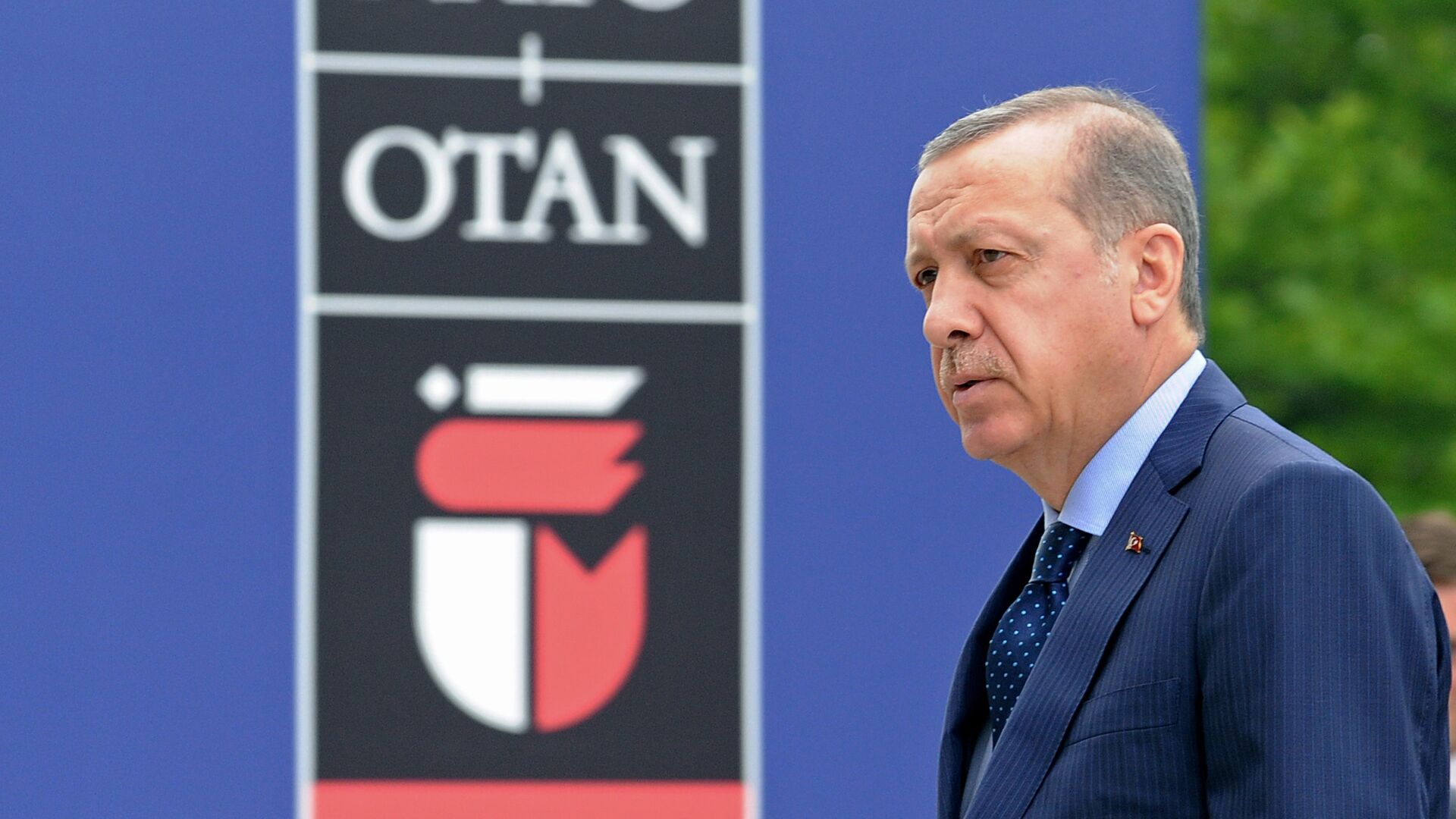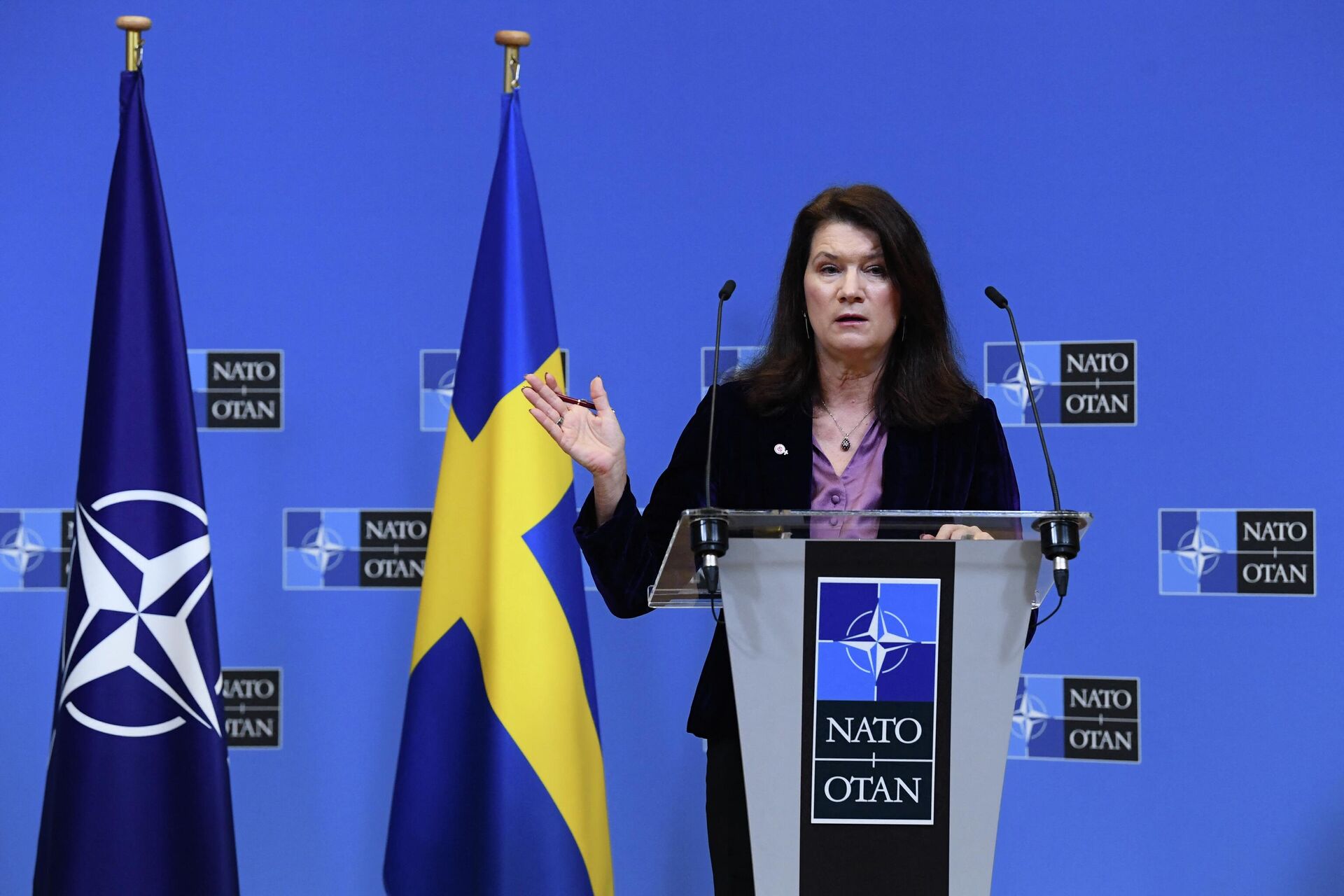‘Not Favorable’: Erdogan Opposes Letting Sweden, Finland into NATO
17:29 GMT 13.05.2022 (Updated: 17:32 GMT 13.05.2022)

© AP Photo / Alik Keplicz
Subscribe
The swift accession of two Scandinavian states to the North Atlantic alliance could hit a snag, as a key member’s opposition would disrupt the unanimity by which the mutual defense bloc governs its membership.
“We are following developments concerning Sweden and Finland, but we are not of a favorable opinion,” Turkish President Recep Tayyip Erdogan told reporters on Friday.
The Turkish leader explained he did not want to repeat Turkey’s “mistake” when it agreed to readmit its regional rival Greece in 1980, which he said had allowed Athens “to take an attitude against Turkey by taking NATO behind it.”
He in particular cited Sweden’s support for Kurdish groups, including the Kurdistan Workers Party (PKK), which Ankara considers a terrorist group.
“Scandinavian countries have become a safe haven, a so-called guest house for PKK and other terror groups,” Erdogan said. “Some terrorists even participate in Sweden’s and the Netherlands’ parliaments.”
Although Finland and Sweden are militarily non-aligned states, they have long had a relationship with NATO providing for various forms of military cooperation and joint training. While some on the right have looked to NATO for additional security in the wake of the launching of Russia’s special operation in Ukraine, many left-wing parties in both countries strongly oppose military alignment.
Swedish Foreign Minister Ann Linde, for example, has claimed that “an armed attack on Sweden cannot be ruled out,” ignoring the specific reasons behind the special operation, including the genocidal eight-year-long war against Russian-speaking minorities in the Donbass region. It is also worth noting that Swedish defense leaders have made this claim for years, justifying a 40% increase in Stockholm’s defense budget in 2020.
NATO Secretary-General Jens Stoltenberg has encouraged their application, saying the accession procedure could be completed in “a couple of weeks,” although it’s likely for the entire process to take at least six months. Their applications are expected before the month is out.

Sweden Foreign minister Ann Linde talks during a press conference with Finland Minister for Foreign Affairs and NATO Secretary General after their meeting at the Nato headquarters in Brussels on January 24, 2022.
© AFP 2023 / JOHN THYS
Based in Brussels, Belgium, the alliance is composed of 30 member states bound together by a mutual defense pact. It was formed in 1949 by a handful of Western European capitalist states to present a united front against the Soviet Union and the several allied socialist states that formed in Central and Eastern Europe after the end of World War 2. After the overthrow of those socialist governments and the dissolution of the Soviet Union in 1991, the now-unrivaled NATO began spreading eastward, adding the new capitalist governments to the alliance in violation of agreements reached with Russia that NATO would not expand further east than a reunified Germany.
By early 2022, four NATO states that shared borders with Russia and Ukraine, governed by a pro-Western nationalist government brought to power by a US-backed coup, were pleading for NATO membership. Moscow has said that Ukrainian NATO membership is a security red line and would pose a threat to Russia, and after negotiations aimed at geopolitically neutralizing Kiev failed, a special operation to accomplish the task was launched on February 24, 2022.
Russian diplomats repeated similar warnings at news of Finland’s NATO application
"The latest expansion of NATO will not make our continent more stable and secure", Kremlin spokesperson Dmitri Peskov told reporters on Thursday. He added that the further strengthening of NATO’s eastern flank would “become an element for a special analysis and the development of the necessary measures to balance the situation and ensure our security.”
"Everything will depend on how the expansion process will manifest itself in the future, how far military infrastructure will move closer to our borders", Peskov stressed.
Oleg Stepanov, Russia’s ambassador to Canada, told Sputnik that if they joined the US-led alliance, “Finland and Sweden will be put in a position where they are forced to treat Russia as an adversary. Reciprocally, Russians are to change their perception of previously neutral countries as the springboard of NATO threat.” This, he said, could turn a once-peaceful region “into yet another potential theater of war.”
